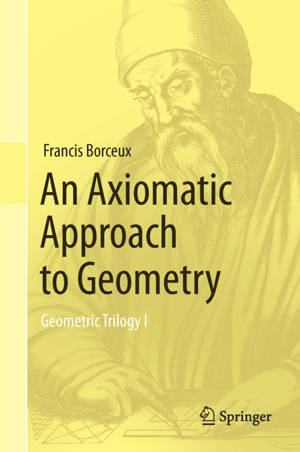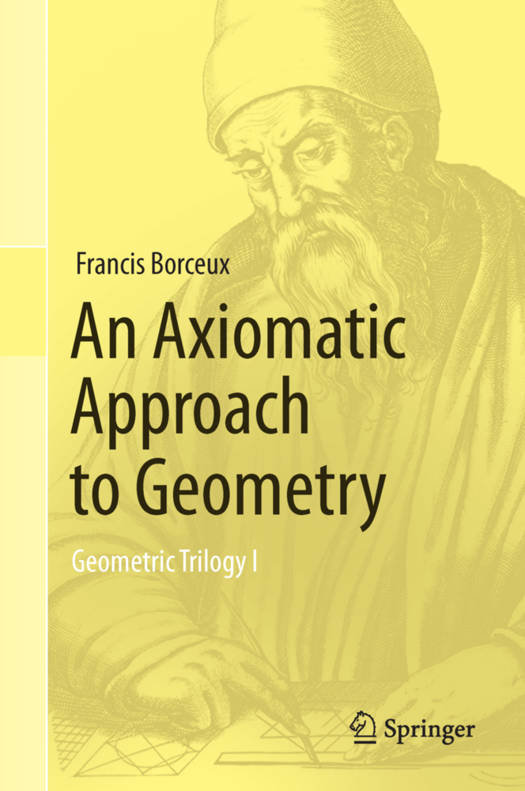
- Retrait gratuit dans votre magasin Club
- 7.000.000 titres dans notre catalogue
- Payer en toute sécurité
- Toujours un magasin près de chez vous
- Retrait gratuit dans votre magasin Club
- 7.000.0000 titres dans notre catalogue
- Payer en toute sécurité
- Toujours un magasin près de chez vous
Description
Focusing methodologically on those historical aspects that are relevant to supporting intuition in axiomatic approaches to geometry, the book develops systematic and modern approaches to the three core aspects of axiomatic geometry: Euclidean, non-Euclidean and projective. Historically, axiomatic geometry marks the origin of formalized mathematical activity. It is in this discipline that most historically famous problems can be found, the solutions of which have led to various presently very active domains of research, especially in algebra. The recognition of the coherence of two-by-two contradictory axiomatic systems for geometry (like one single parallel, no parallel at all, several parallels) has led to the emergence of mathematical theories based on an arbitrary system of axioms, an essential feature of contemporary mathematics.
This is a fascinating book for all those who teach or study axiomatic geometry, and who are interested in the history of geometry or who want tosee a complete proof of one of the famous problems encountered, but not solved, during their studies: circle squaring, duplication of the cube, trisection of the angle, construction of regular polygons, construction of models of non-Euclidean geometries, etc. It also provides hundreds of figures that support intuition.
Through 35 centuries of the history of geometry, discover the birth and follow the evolution of those innovative ideas that allowed humankind to develop so many aspects of contemporary mathematics. Understand the various levels of rigor which successively established themselves through the centuries. Be amazed, as mathematicians of the 19th century were, when observing that both an axiom and its contradiction can be chosen as a valid basis for developing a mathematical theory. Pass through the door of this incredible world of axiomatic mathematical theories!
Spécifications
Parties prenantes
- Auteur(s) :
- Editeur:
Contenu
- Nombre de pages :
- 403
- Langue:
- Anglais
Caractéristiques
- EAN:
- 9783319017297
- Date de parution :
- 08-11-13
- Format:
- Livre relié
- Format numérique:
- Genaaid
- Dimensions :
- 156 mm x 234 mm
- Poids :
- 762 g

Les avis
Nous publions uniquement les avis qui respectent les conditions requises. Consultez nos conditions pour les avis.






